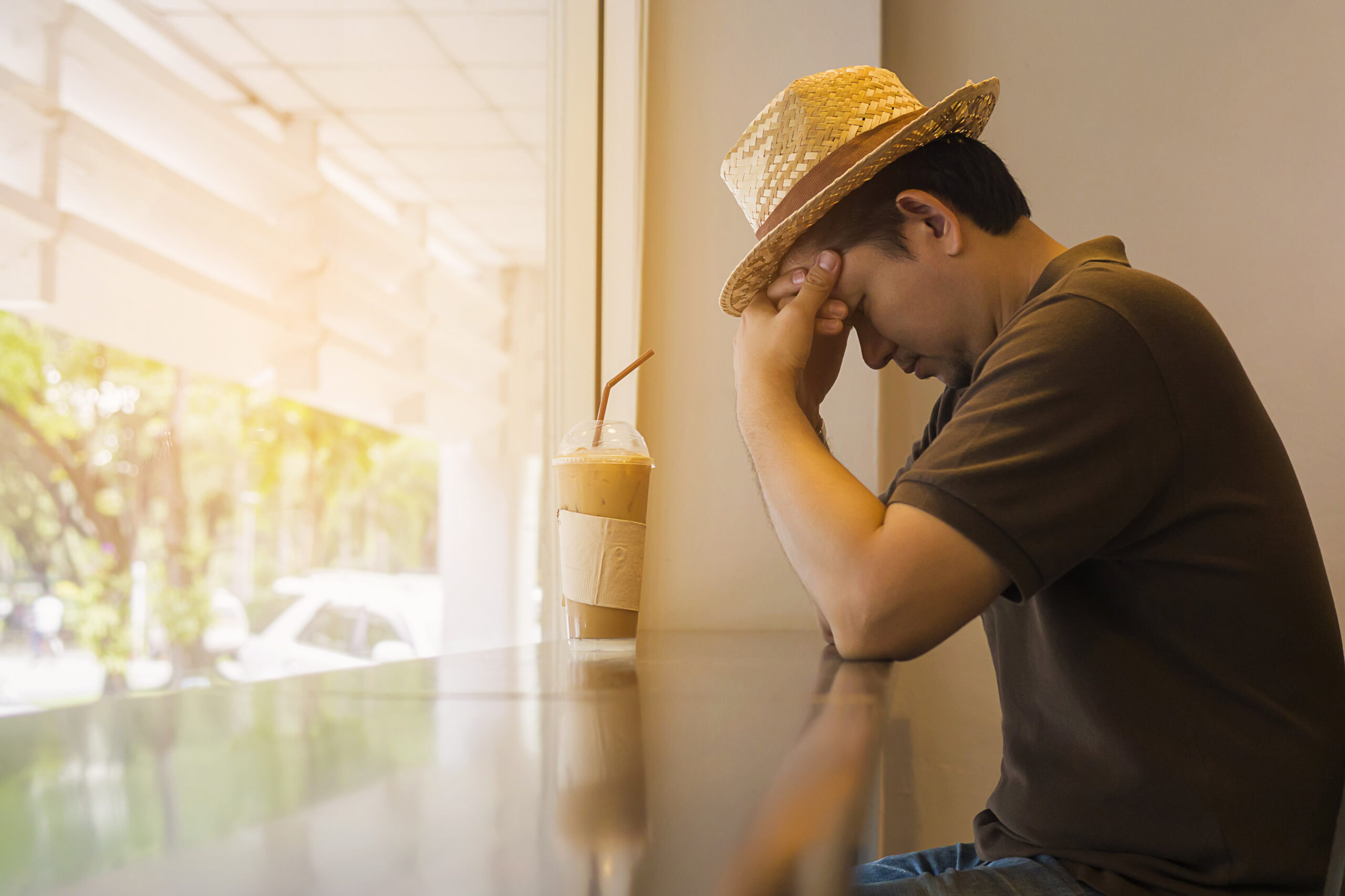When people think of seasonal depression, they often imagine winter months marked by gray skies, short days, and low energy. But for some, depression doesn’t disappear with the sunshine—it intensifies. In fact, many individuals experience a very real form of depression during the summer months, even when everything around them seems bright, busy, and full of life.
This condition, known as summer-pattern Seasonal Affective Disorder (SAD) or reverse SAD, is a lesser-known form of seasonal depression that tends to emerge during the late spring or summer. Instead of low energy and excessive sleep, it’s often marked by restlessness, anxiety, and difficulty sleeping—symptoms that can be just as disruptive to daily life.
Here at Crossroads Counseling, we understand that depression can surface—even spike—when the sun is shining. For those silently struggling through long, hot days filled with pressure to “feel good,” validation and support are vital.
In this blog, we’ll explore what summer-onset depression looks like, why it happens, and how therapy, lifestyle changes, and—when appropriate—anti-depressants can help. If you’ve found yourself searching depression therapy near me during the warmest time of year, you’re not alone—and help is available, contact us at Crossroads Counseling for next steps.
Understanding Summer-Pattern Seasonal Depression
Summer-pattern Seasonal Affective Disorder (SAD)—also called reverse SAD—is a type of depression that occurs in response to the seasonal changes of spring and summer, rather than the colder months. While it’s less commonly talked about than its winter counterpart, it’s just as real and can be just as debilitating for those who experience it.
Unlike winter SAD, which is typically associated with low energy, increased sleep, and weight gain, summer-pattern SAD often presents in the opposite direction. Individuals may feel wired but tired—emotionally drained but unable to rest or slow down. The mood disturbance can be intense, especially in environments that emphasize outdoor activity, socializing, or constant stimulation.
Core Symptoms of Summer-Onset SAD Include:
- Restlessness or agitation
- Irritability or increased sensitivity to stress
- Loss of appetite or unexplained weight loss
- Difficulty falling or staying asleep (insomnia)
- Persistent low mood, hopelessness, or emotional numbness
- Heightened anxiety or feelings of panic
Because these symptoms arise during a time when many are expected to feel upbeat and energetic, people often feel isolated or misunderstood—which can deepen the emotional struggle. Recognizing these signs is a critical step toward seeking support, whether through depression counseling near me, lifestyle changes, or medical treatment options.
Why Summer Triggers Depression for Some
While summer is often portrayed as a carefree, joyful season, for many individuals it can bring a wave of emotional difficulty that feels both confusing and isolating. Understanding why summer triggers depression for some people helps break the stigma and opens the door to more compassionate, effective care.
Biological Factors
One of the primary biological contributors to summer-pattern depression is circadian rhythm disruption. Longer daylight hours and later sunsets can throw off the body’s internal clock, leading to trouble falling asleep and staying asleep. Poor sleep quality, in turn, can heighten emotional sensitivity, reduce energy, and contribute to persistent irritability.
In addition, heat sensitivity plays a major role. Excessive temperatures can cause physical discomfort, dehydration, and fatigue—all of which can amplify feelings of anxiety or restlessness, particularly for those already prone to emotional distress.
Psychological & Social Triggers
Summer also brings its own psychological pressures. Warmer weather often means more time in public or social settings, which can intensify body image concerns or feelings of self-consciousness. For some, this pressure to wear lighter clothing or participate in outdoor activities can lead to shame, withdrawal, or avoidance behaviors.
Disrupted routines—like changes in school schedules, vacations, or lack of structured work hours—can also destabilize emotional rhythms. And then there’s the unspoken expectation that everyone should be having fun. The cultural messaging around summer as a time of happiness and freedom can be deeply invalidating for those feeling low, adding a layer of guilt or confusion to their experience.
Environmental Stressors
On a more practical level, summer can bring environmental and financial stressors that add weight to existing emotional challenges. Heatwaves, crowded public spaces, overstimulation from constant activity, and financial strain from vacations or childcare costs can all contribute to a sense of emotional overwhelm.
Together, these factors help explain why depression can feel especially jarring during summer. And why more individuals are quietly searching depression therapy near me or asking their doctors about anti-depressants—often unsure why they’re feeling this way when everything around them appears “perfect.”
How to Cope: Healthy Strategies for Managing Summer Depression
If summer leaves you feeling more drained than uplifted, know that you’re not alone—and more importantly, you’re not without options. With the right combination of lifestyle adjustments, therapeutic support, and, in some cases, medication, it’s entirely possible to manage summer-onset depression and reclaim a sense of balance.
Lifestyle Strategies
Managing your environment and routines can help regulate mood and reduce overstimulation during the summer months. Some practical strategies include:
- Prioritizing sleep hygiene: Stick to a regular bedtime, minimize screen time before bed, and use blackout curtains to help your body wind down despite late sunsets.
- Staying cool and hydrated: Avoid long periods in direct sun, drink plenty of water, and use cooling tools like fans or cold compresses to reduce agitation tied to heat.
- Creating structured routines: Unstructured summer days can feel chaotic. Setting gentle daily rhythms—mealtimes, movement, rest—can offer stability.
- Limiting overstimulation: Balance social activity with solitude. Seek out calm, quiet environments when needed.
These small changes help ease physical stress, which in turn lowers emotional strain.
Therapeutic Support
If lifestyle shifts aren’t enough—or if your symptoms are persistent—it may be time to seek professional support. Searching for depression counseling near me can be the first step toward finding a therapist who understands how seasonal depression works and how it affects you personally.
Acceptance and Commitment Therapy (ACT) offers a powerful approach for addressing seasonal and situational depression by helping individuals build psychological flexibility. Instead of challenging or changing thoughts, ACT guides people in accepting difficult emotions and thoughts without judgment, while committing to values-based actions. Through mindfulness techniques and self-compassion, individuals learn to unhook from unhelpful mental loops and reconnect with what truly matters to them. ACT also creates a supportive, nonjudgmental space to explore the emotional heaviness that can come with summer, allowing relief to emerge through clarity, presence, and purpose-driven living.
Medication Options
For some individuals, therapy alone may not be enough. That’s where anti-depressants or medication management come in. Selective Serotonin Reuptake Inhibitors (SSRIs) or other medications may be prescribed to stabilize mood, reduce anxiety, and support healthy sleep and appetite during the summer months.
Medication doesn’t have to be long-term—it can serve as a bridge while you develop new coping skills or weather a particularly tough season. The key is working with a licensed provider who can tailor a treatment plan to your unique needs and monitor your progress over time.
Whether you’re drawn to therapy, interested in anti-depressants, or exploring both, taking action is an important sign of self-awareness—not weakness.
When to Seek Professional Help
It’s easy to brush off summer depression as a passing phase—but when emotional distress lingers or intensifies, professional support can make all the difference. Knowing when to reach out is a crucial step toward reclaiming your well-being.
Signs It’s Time to Reach Out
If you’re experiencing any of the following, it may be time to seek help:
- Persistent low mood lasting more than two weeks
- Loss of interest or pleasure in activities you usually enjoy
- Increased anxiety, restlessness, or irritability
- Sleep disturbances, fatigue, or changes in appetite
- Feelings of hopelessness or suicidal thoughts
- Difficulty concentrating or performing daily tasks
These symptoms aren’t something you should try to “push through” alone. They’re signs your mind and body are asking for deeper support.
Therapy Options That Fit Your Life
Finding the right therapeutic match can feel overwhelming—but help is more accessible than ever. Start by searching for depression therapy near me to explore local options. Look for licensed providers who specialize in mood disorders, seasonal depression, or anxiety-related concerns.
If travel, schedule, or heat-related discomfort is a barrier, online therapy and telehealth counseling are excellent alternatives. Many platforms now offer secure, HIPAA-compliant video sessions with experienced clinicians, allowing you to get the help you need from the comfort of your home—even in the peak of summer.
No matter the method, reaching out to a mental health professional is an act of courage and self-care. You deserve support that meets you where you are.
Supporting a Loved One Through Summer Depression
Sometimes, it’s not our own mood that signals something’s wrong—it’s what we notice in someone we care about. If a friend, partner, or family member seems emotionally off during the summer months, your support could be the bridge they need to start healing.
How to Recognize Signs in Others
Summer-pattern depression can be subtle, especially when it shows up as irritability or restlessness rather than sadness. You might notice that your loved one:
- Seems more withdrawn or easily overwhelmed
- Complains of poor sleep or is unusually tired despite the season
- Avoids social plans or feels uncomfortable in typical summer settings
- Expresses hopelessness or frustration about their mood
- Talks about feeling anxious, agitated, or like something is “off”
Because summer depression is less talked about, many people don’t recognize what they’re experiencing—or feel ashamed that they’re not enjoying the season like others seem to.
Ways to Support Without Judgment
Supporting someone with seasonal depression doesn’t require having all the answers—it starts with being present and compassionate. Here’s how you can help:
- Listen without judgment. Let them express how they’re feeling without rushing to fix it or offering comparisons. Sometimes, just being heard is the first relief.
- Offer practical help. If they’re overwhelmed, suggest helping them look into depression therapy near me or online counseling. Offer to help with scheduling or transportation if needed.
- Create a calming environment. Reduce overstimulation by offering quiet companionship, organizing a relaxing space, or suggesting simple, low-pressure activities like a walk or movie night.
- Encourage, but don’t pressure. Let them know it’s okay to seek help—and that they’re not weak or broken for needing it.
Your steady, nonjudgmental support can gently guide them toward professional care, whether that’s therapy, lifestyle changes, or a conversation about anti-depressants with a provider.
You Are Not Alone
Summer depression is real. And just because it happens during a season filled with sunshine, vacations, and social events doesn’t make it any less valid—or any less deserving of support. Whether it’s trouble sleeping, rising anxiety, or a sense of emotional numbness that just won’t lift, summer-pattern depression is treatable and nothing to be ashamed of.
If you’ve been silently struggling while the world around you seems to glow, know this: you don’t have to suffer just because the sun is shining. Your pain is real, and relief is possible.
Whether you’re looking for lifestyle strategies, a therapist to talk to, or considering anti-depressants as part of your care plan, taking the first step toward healing is powerful. Start by searching for depression therapy near me or depression counseling near me to connect with licensed professionals who understand seasonal mood challenges and can guide you toward balance and peace.
At Crossroads Counseling, we’re here to help you navigate these hard seasons with care, compassion, and expert support. Contact us today to learn more about therapy options or to schedule an appointment.
If you need immediate help, contact: National Helpline: 1-800-662-HELP (4357)
You deserve support. You deserve relief. And you don’t have to wait for the season to change to start feeling better.



